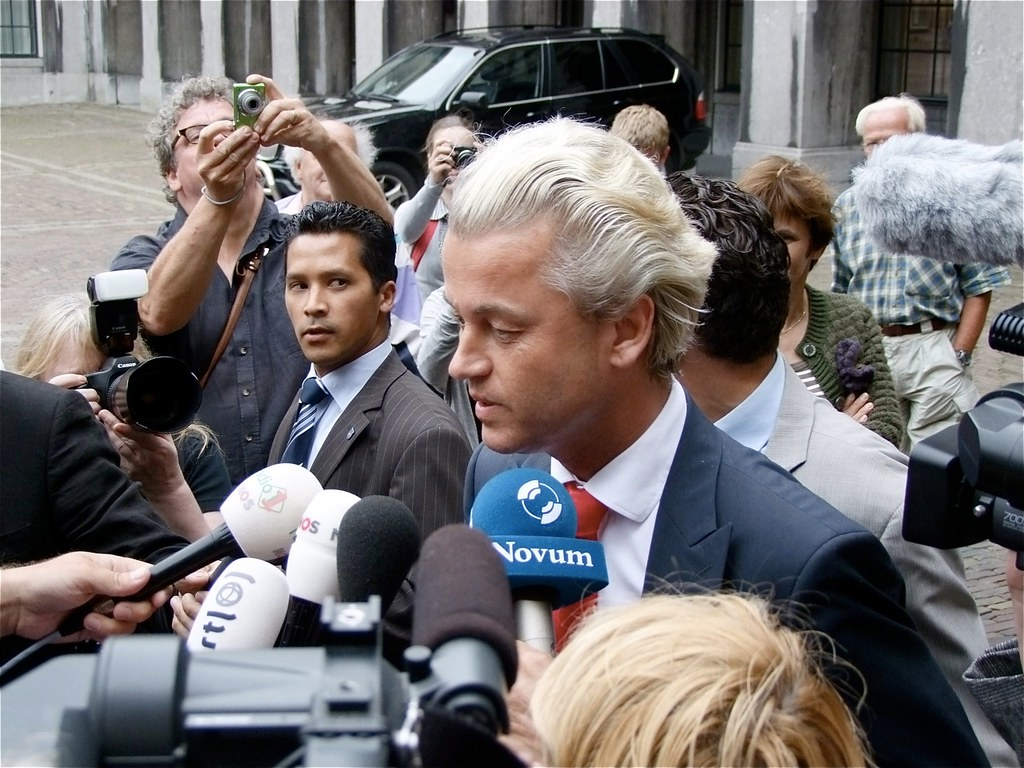
These are the consequences of the Dutch elections
The results of the national elections in the Netherlands are known. The right-wing party PVV has become the largest party. It is followed by the parties GroenLinks, VVD and NSC. Read here about how the elections may affect you.
These are the biggest parties after the election
The PVV is now the largest party. They won 37 of the 150 seats in the House of Representative. The 2nd largest party is GroenLinks-PvdA (25 seats), followed by the VVD (24 seats) and NSC (20 seats).
The PVV is a right-wing party that wants to "stop the influx of asylum and migration to the Netherlands" and "counter the Islamisation of the Netherlands". The 2nd largest is the leftist party GroenLinks-PvdA. On the contrary, they want "to not abandon refugees" and "that refugees can participate in society faster, for example by being allowed to work fully soon".
Standpoints in your own language
Several parties will now form a government together
In order to form a government in the Netherlands, it is convenient to have a majority of seats in the House of Representatives. As not one party has a majority on its own, parties must start negotiating with each other to form a government. This is called the fformation. A supervisor, formateur, who is elected by the House of Representatives, leads the negotiations.
Normally, the largest party starts by forming a government. They are going to see if they can come to an agreement with other parties on standpoints that are important to them. So in practice, in the Netherlands, you actually always have to work with other parties to form a government.
There is even a special Dutch word for this manner of cooperation, which we call 'polderen' in the Netherlands. So in this case, the PVV must find parties that want to cooperate with them and with whom they can agree. If that fails, the other parties may try to start a cooperation.
There is a strong possibility of a right-wing government
Many parties indicated before the elections that they do not want to cooperate with the PVV. The leftist party GroenLinks-PvdA certainly does not want to cooperate with the PVV. Some parties such as the VVD and NSC might want to cooperate with the PVV. Therefore, there is a high chance that there will be a right-wing government that wants to change things that are important for refugees, for example:
Fewer people are allowed to seek and receive asylum in the Netherlands.
It will become more difficult to apply for family reunification for refugees who are already there.
Provisions for refugees in the Netherlands will decrease.
However, it is not certain that these things are going to change. These are a few examples of issues that are important to the party that became the largest after the election.
It takes a long time to understand what and when the laws will change
In the Netherlands, laws and policies do not change quickly. Before laws and policies change, there has to be a government. Sometimes this takes a long time. The last time a government had to be formed, it took 299 days because the parties could not come to an agreement.
There is a good chance that it will now also be a long time before there is a new government. Indeed, many political parties have said they find it difficult to work with the PVV.
Even after there is a government, it may still be a long time before new laws and rules on asylum and family reunification are introduced. This is because the things the PVV wants to change are difficult to change:
The things the PVV wants to change are sometimes about the constitution. The constitution is very difficult to change. The constitution establishes the most important laws. It is the basis for all other laws that are made. And you have to comply with a lot of rules and procedures if you want to change it.
Some of the things the PVV wants to change are about European law and cooperation with the European Union (EU). A national government like that of the Netherlands has to follow the rules of Europe. Or the Dutch government has to decide it no longer wants to be a member of the EU. This too is difficult to change and takes a lot of time.
In the Netherlands, the government does not have sole power
In the Netherlands, the government is not the only one with the power to change things. In Dutch democracy, judges, the Public Prosecutor's Office, the Senate and the House of Representatives also influence how and which laws are made. They also control laws. So the government cannot decide everything on its own.